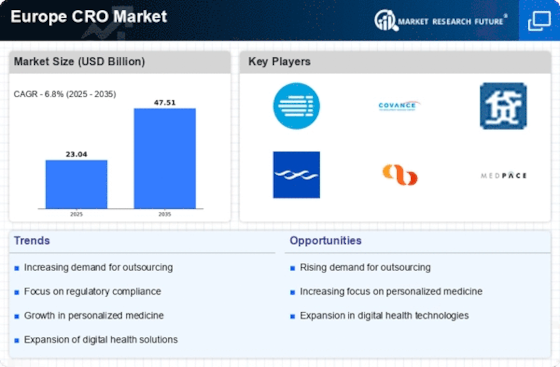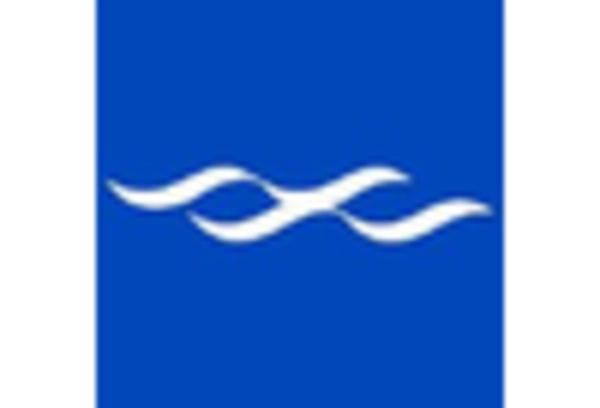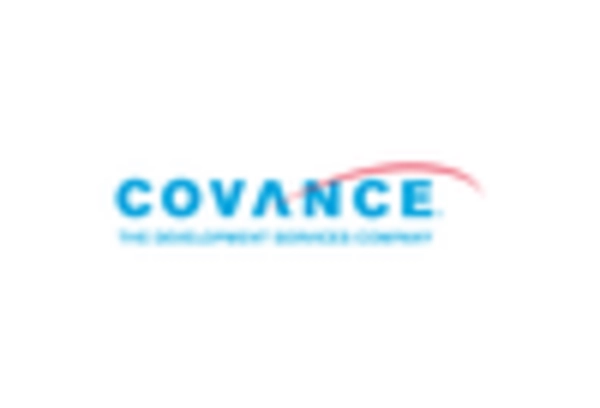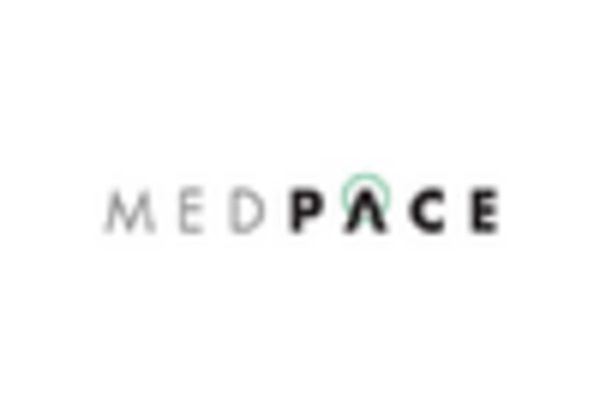Market Trends
Key Emerging Trends in the Europe CRO Market
The renal dialysis market has seen a significant increase in research and development (R&D) spending focused on creating new and improved dialysis products. With the growing number of people affected by chronic kidney disease (CKD) and end-stage renal disease (ESRD), there is a strong demand for better and more efficient dialysis solutions. To meet this demand, healthcare companies and research institutions have been investing heavily in R&D. These efforts have led to impressive advancements in dialysis technology, including machines, filters, and related accessories, which have enhanced the overall performance and patient experience. Breakthroughs in technology, such as wearable and portable dialysis devices, have emerged from these initiatives, offering patients greater mobility and convenience. For example, in April 2023, Medtronic plc and DaVita Inc launched Mozarc Medical, which aims to revolutionize home dialysis by improving accessibility, ease of use, and clinical performance.
Moreover, there has been a focus on improving the compatibility of dialysis equipment and reducing complications associated with treatment, leading to the development of better dialysis membranes and catheters. There has also been a growing interest in bioartificial kidneys and regenerative medicine approaches, seeking to develop long-term solutions that can restore kidney function. Increased R&D spending has also paved the way for precision medicine approaches, customizing dialysis treatments based on individual patient needs, including their genetic and molecular profiles.
Additionally, the integration of artificial intelligence and machine learning in dialysis technologies has enabled real-time monitoring and personalized treatment optimization. Research efforts are not only focused on technical aspects but also on understanding patient psychology and improving their overall quality of life during dialysis therapy. As a result of these sustained R&D investments, the renal dialysis market is experiencing a revolution, bringing forth a new generation of advanced and patient-centric dialysis products that hold the promise of transforming the lives of millions of CKD and ESRD patients worldwide.



















Leave a Comment